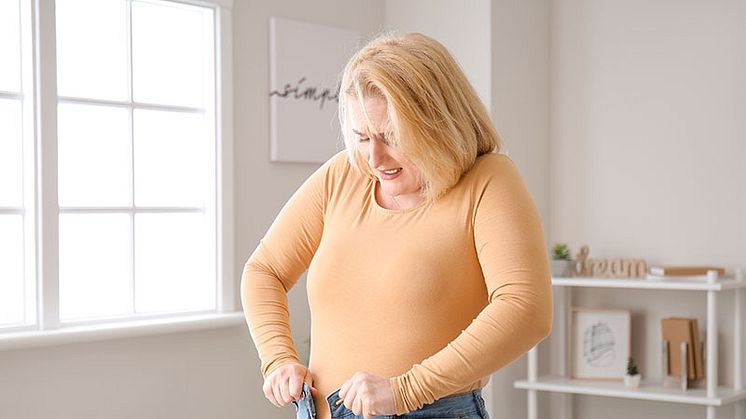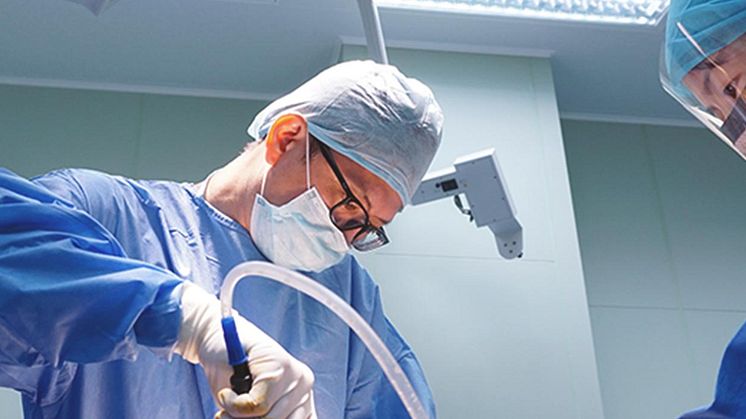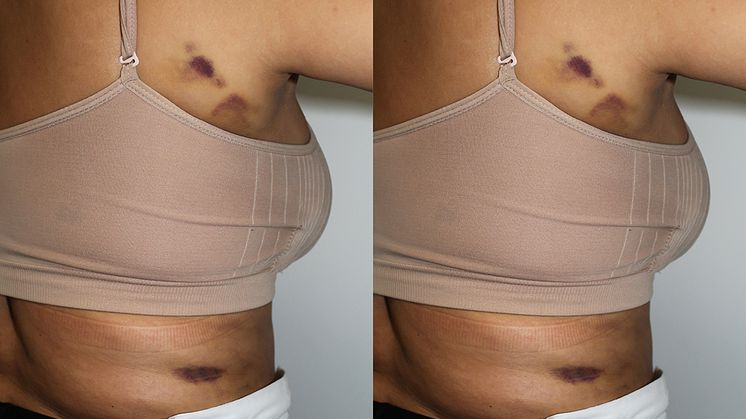
Blog post -
What To Do With Stubborn Belly Fat
At 60, I am fairly happy with my body. I'm one size larger than I would like to be but reasonably fit and healthy. However, I always try to hide one part of my body: my tummy! I do different exercise classes, but I probably don't stretch enough, and I know I sit too much. Luckily, I've just found the perfect swimwear to help hide it for my Italian holiday – it has a flared top half!
So, why do we get belly fat? Why is belly fat so stubborn? And would liposuction or a fat-burning treatment solve this stubborn fat problem?
Causes of belly fat
Did you know that stress can cause the belly to look larger? I know that when I'm stressed, my belly immediately starts to look rounder. The problem is you can then get annoyed with it and inadvertently hold on to it for longer!
According to Dr Ivan Puah, Medical Director at Amaris B. Clinic, "higher stress levels, in general, can lead to excess fat around the abdominal organs – sometimes known as a 'stress belly'." He adds that this is often the hardest type of belly fat to get rid of.
Research says that stress can also lead to decreased fat oxidation, which allows fat to be burnt as energy. This means you don't necessarily have to consume more food or burn less energy to put weight on.
4 different belly types
There's not just a stress belly; it could be a post-baby tummy that's taking much longer than you thought it would shift. Alcohol can also cause bloating and weight gain in that area.

Stress belly
If you're stressed, you will have higher levels of cortisol, the stress hormone, which gets the body to store fat. If your body stores more in the abdomen, this area is usually the hardest to eliminate. Stress can cause a decrease in fat oxidation – how fat is burnt as energy. So you might find that you're not eating much, but the fat still isn't going away!
Mummy belly
It's normal not to go straight back to the body you had before, but it can be annoying, especially not being able to fit into your clothes! A 'mummy tummy' describes a tummy that is flabby with two areas of fat on either side of your belly button.
Alcohol belly
Too much booze, especially beer, can block the body from breaking food down properly or your liver's ability to burn fat. Some ingredients in alcohol and processed foods can affect the balance of good and bad bacteria and cause bloating and increased fat production.
Hormonal belly
Hormone levels can affect your fat-burning efficiency too. Higher oestrogen causes us to hold the fat in all areas, while low oestrogen levels shift the fat-holding area from the hips and thighs to the abdomen. Higher testosterone increases fat around the waist and thighs. In men, low testosterone slows the metabolism and increases belly fat.
What is stubborn fat and what makes it so stubborn?

When we talk about stubborn fat, it refers to those areas that are difficult to lose through diet and regular exercise. Apparently, stubborn fat is more resistant to fat burning because it acts as an energy storage. Our body holds on to this energy psychologically and physiologically for preservation.
Dr Puah talks us through the different types of belly fat.
#1 Visceral belly fat
Visceral fat is fat stored inside the belly, wrapped around the organs and beneath the firm abdominal wall. It holds fatty acids, inflammatory proteins amongst other substances that are absorbed by the liver. If this liver fat is high, it can cause insulin resistance and non-alcoholic fatty liver disease.
#2 Subcutaneous belly fat
While subcutaneous belly fat doesn’t seem to have the risk factor visceral fat does, overall high belly and body fat does; so it’s still important to keep overall belly fat low. Subcutaneous fat is the squishy stuff just below the skin and makes up about 90% of our overall body fat. We only start burning this type of fat after visceral fat is used for energy. It’s harder to lose and usually collects around the stomach, thighs, hips and bottom.
Three types of liposuction for getting rid of belly fat

#1 Laserlipolysis (Laser Liposuction)
Laserlipolysis (Laser Liposuction) is a minimally invasive laser-assisted liposuction that breaks down the fat cells into liquified fat, which is then removed through suction. Apart from melting fat, laser energy also stimulates collagen production via tissue coagulation.
#2 Vaser Liposuction
Vaser liposuction uses ultrasonic high-frequency vibrations to loosen, break down and melt the fat cells, which are then removed using a liposuction cannula. This technique leaves the surrounding connective tissues relatively undisturbed.
#3 Modern Liposuction with MDC-Sculpt Lipo Technique
Dr Puah describes liposuction as 70 percent art and 30 percent science. His experience with body-shaping has led him to successfully develop the MDC-Sculpt Lipo Technique. MDC stands for Multi-Dimensional Contouring, and his proprietary approach has a three-pronged objective: fat removal, targeted body sculpting and skin tightening, with sculptured and natural-looking results. Plus, it’s gentler and has a faster recovery time with less bruising, discomfort and scarring.
Liposuction also has other health and medical benefits, such as:
- Reduction in triglycerides (a type of fat found in your blood) by 25%
- Reduction in the total count of leucocytes (white blood cells)
- Liposuction leads to fat loss without causing any change in lean mass
- A systemic 2017 review showed that liposuction improved metabolic balance and
- cardiovascular risk factors
- Reduces vascular inflammation in obese patients, reducing their cardiovascular risk
So, if you’re unhappy with the shape of your tummy or any part of your body, schedule a consultation and see the best option. It can affect our confidence and our mood! It’s pretty frustrating, especially when you think you’re doing what you can to reduce it, and nothing is happening.




